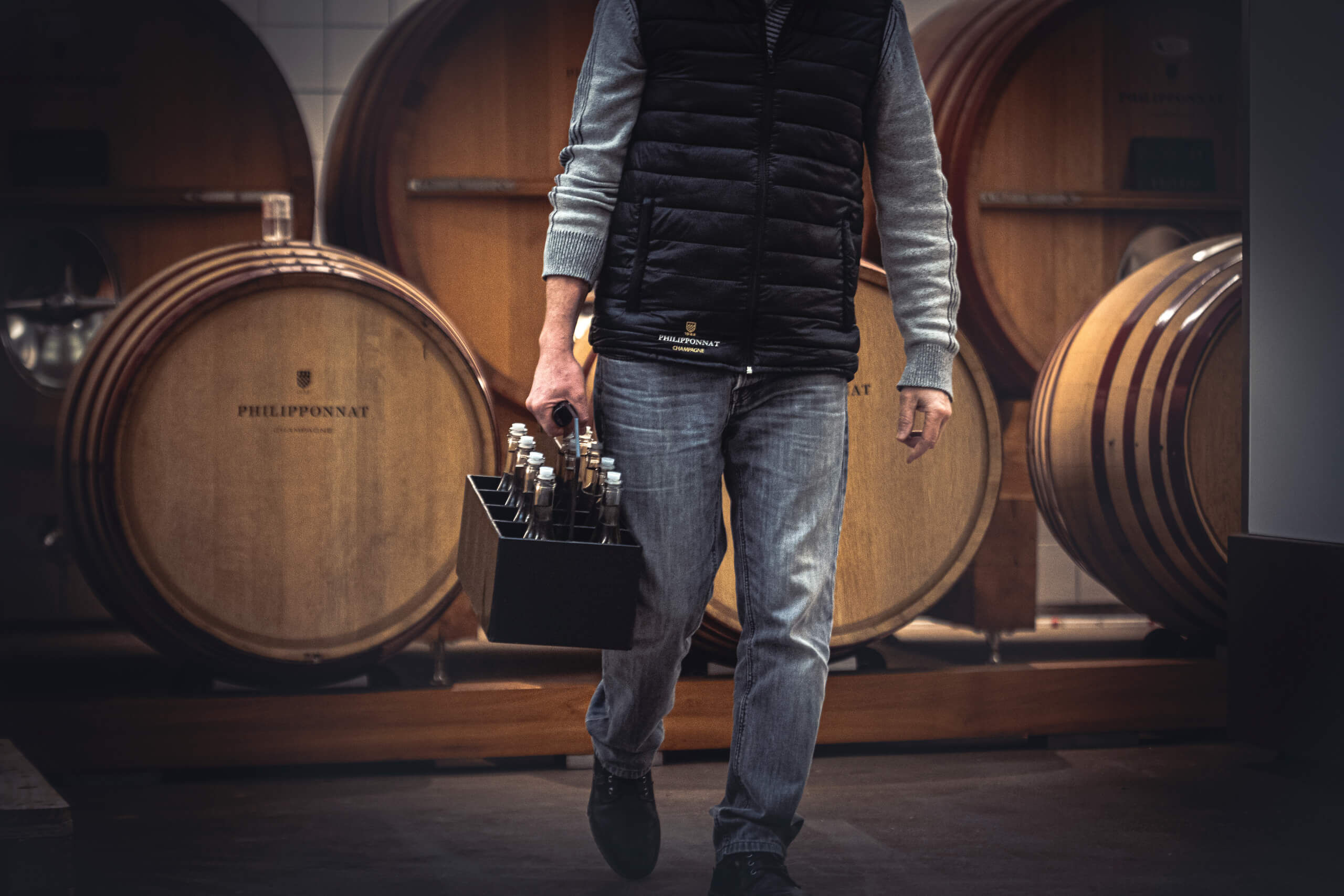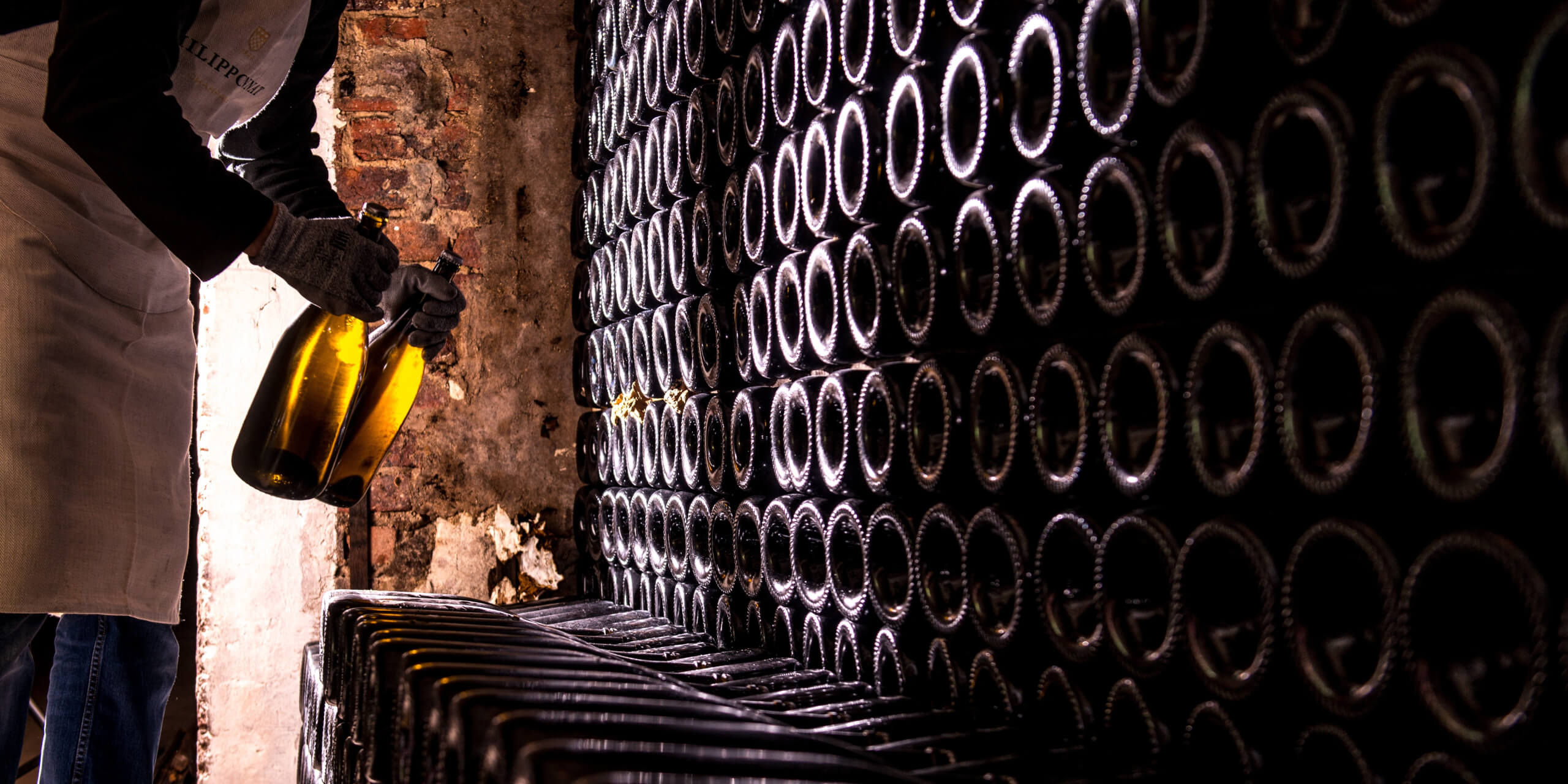
Interview with Thierry Garnier, Cellar Manager
Both in the cellar and in the vineyard, the methods used by Philipponnat are those that most respect the environment. Interview with Thierry Garnier, the House’s Cellar Master for over thirty years.
Thierry, what is the guiding principle behind your decisions at each stage of the winemaking process?
For a long time, wine has been defined as the only “ingredient” of itself. That’s what it is. But even if the world’s greatest wine is “just” fermented grape juice, our job is to carry out this organic transformation as simply and respectfully as possible, in order to preserve as much of the grapes’ initial aromatic and organoleptic potential as possible.
How does this philosophy of careful fruit preservation work in practice?
We faithfully abide by the Champagne pressing rules, using only the first presses. We use static must settling. We start fermentation by adding yeasts selected in Champagne 30 or 40 years ago, and malolactic fermentation is triggered by selected bacteria. We don’t take the risk of using indigenous yeasts which, for us, can mean instability depending on the vintage. The first yeasts were selected at Philipponnat in the 1920s by its Cellar Manager, Louis Bolland, who was also a biologist by training.
What is your practice regarding the use of inputs during the winemaking process?
Our facilities and all our winemaking procedures are now certified organic. All oenological inputs are organically certified and authorised for all vintages. We have chosen to use only organic‑certified products. So we don’t use any synthetic or animal‑based inputs. We do not fine our wines and we have banned the use of oenological charcoal for decolouration. Where filtration is concerned, light filtration on clay or cellulose is essential to avoid malolactic fermentation. In the same vein, we do not carry out any acidification or deacidification. The acidity is adjusted by deciding whether or not to carry out malolactic fermentation, while taking account of the balance of the vintage.
How have practices changed over the last thirty years?
The way things are done has undeniably changed in three decades, if only because environmental awareness has evolved. However, at Philipponnat, this awareness has long been part of our way of doing things, both in the vineyard and in the cellar. We turned the corner on sustainable development over thirty years ago with reason, prudence and determination. We’ve been using only organic fertilisers and no insecticides on the vines for over thirty years. In the cellar, we take the same approach: our watchword is to preserve the fruit and its organoleptic characteristics, while guaranteeing respect for nature and for people.



